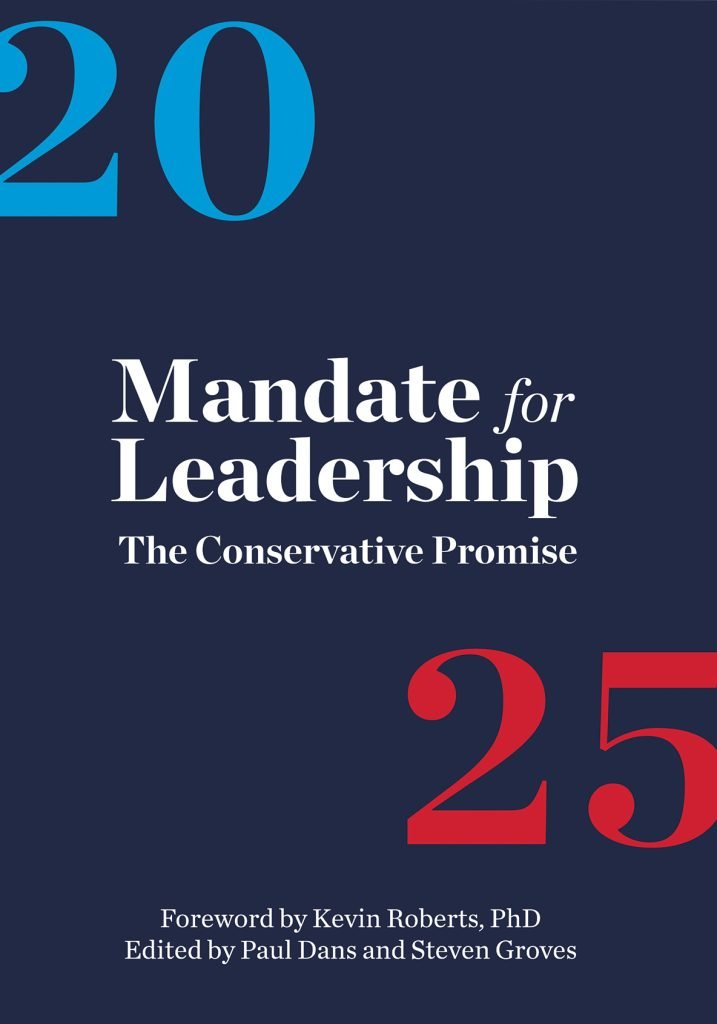

I have mixed feelings about all the attention Christian nationalism is getting these days. As someone who first used the term back in 2011, well before most of the contemporary commentators, I resist efforts to turn all Christian political activity into “Christian nationalism.” On the other hand, Christian nationalism does exist, and its promoters are very well-funded.
Here is Guthrie Graves-Fitzsimmons at MSNBC:
A coalition of far-right groups, led by the Heritage Foundation, is planning for the next Republican administration. Project 2025 has received considerable media attention for its $22 million budget, for its plans to expand presidential power over federal agencies, and for specific policies, like rolling back environmental protections.
However, the plan’s theocratic elements have gone unscrutinized.
Project 2025 published a book of policy proposals, titled “Mandate for Leadership: The Conservative Promise,” for the next Republican administration. Heritage Foundation President Kevin Roberts opens the book by prioritizing the securing of “our God-given individual rights to live freely” against a “woke” threat. “Today the Left is threatening the tax-exempt status of churches and charities that reject woke progressivism,” he claims without evidence. “They will soon turn to Christian schools and clubs with the same totalitarian intent.”
Roberts’ view that progressives are out to get Christians sets the tone for individual chapters on various federal agencies. While anti-abortion and anti-LGBTQ policies run throughout the book, several policy areas stand out.
Roger Severino’s chapter on the Department of Health and Human Services urges the next conservative president to “maintain a biblically based, social science–reinforced definition of marriage and family.” Severino is concerned that federal programs will be subjected to “nonreligious definitions of marriage and family as put forward by the recently enacted Respect for Marriage Act.”
The Respect for Marriage Act, passed last year by Congress with strong bipartisan support, requires the federal government and states to recognize same-sex and interracial marriages. The law is not religious or nonreligious; it is a constitutionally enacted law of the United States.
Project 2025 appears to call on the next Republican president to draw distinctions between parts of the law as “religious” and “nonreligious.” The Bible is not a higher authority than laws passed by Congress, and far-right groups do not have to like American laws to respect that those laws are not overruled by their personal interpretation of the Bible.
Another startling section by Severino concerns Covid-19 policies, opposition to which has galvanized conservative Christians. He criticizes the Centers for Disease Control and Prevention’s actions and wonders “how much risk mitigation is worth the price of shutting down churches on the holiest day of the Christian calendar and far beyond as happened in 2020? What is the proper balance of lives saved versus souls saved?”
That’s not a tough question to answer: The federal government does not need to worry about saving souls.
Meanwhile in his chapter on the U.S. Department of Labor, Jonathan Berry frames his proposals as part of divine history. “The Judeo-Christian tradition, stretching back to Genesis, has always recognized fruitful work as integral to human dignity, as service to God, neighbor, and family,” he writes, while claiming the Biden administration “has been hostile to people of faith.”
Berry worries that “God ordained the Sabbath as a day of rest, and until very recently the Judeo-Christian tradition sought to honor that mandate by moral and legal regulation of work on that day” and blames consumerism and secularism for the decline in Sabbath observance.
Read the rest here.
We didn’t have mandatory Sabbath closings on a national scale even at the high-point of evangelical Protestant cultural hegemony in the 19th c.
Anyone thinking that’s on the horizon for the 21st is … well, I admire the liveliness of their imaginations.